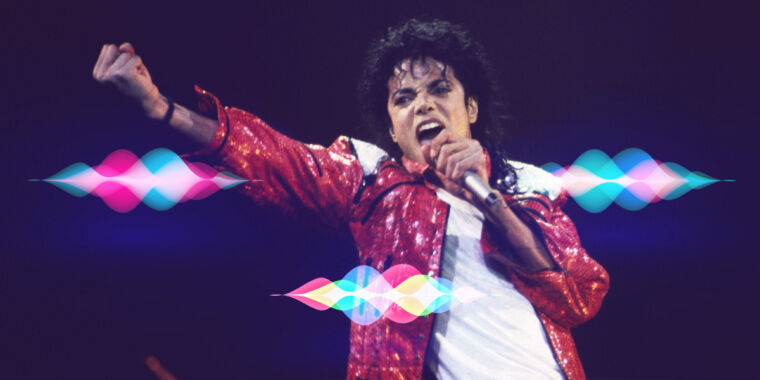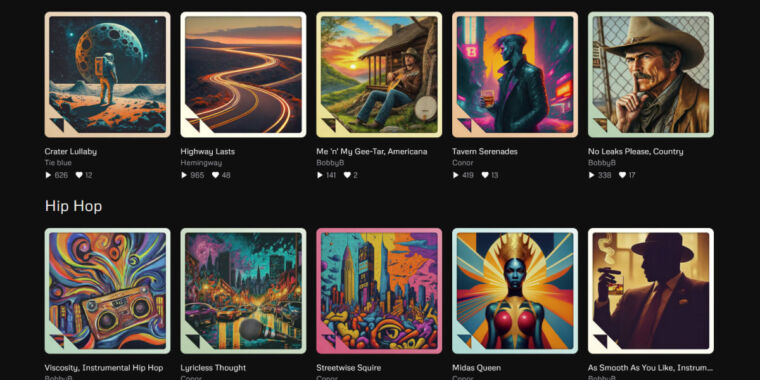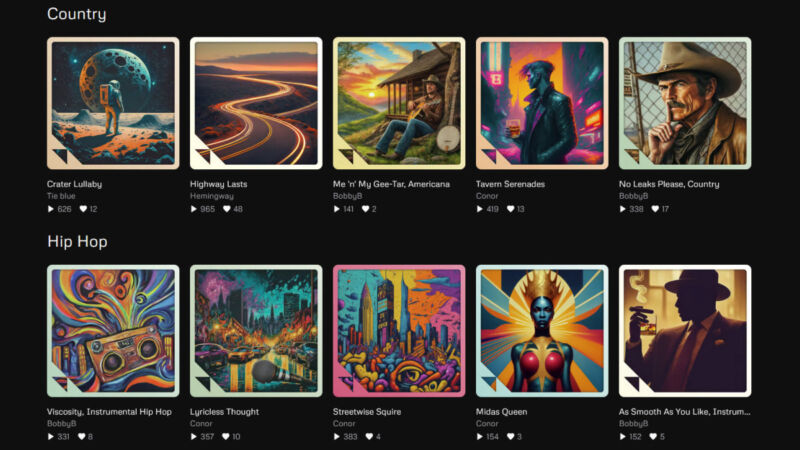Music industry giants allege mass copyright violation by AI firms
No one wants to be defeated —
Suno and Udio could face damages of up to $150,000 per song allegedly infringed.

Enlarge / Michael Jackson in concert, 1986. Sony Music owns a large portion of publishing rights to Jackson’s music.
Universal Music Group, Sony Music, and Warner Records have sued AI music-synthesis companies Udio and Suno for allegedly committing mass copyright infringement by using recordings owned by the labels to train music-generating AI models, reports Reuters. Udio and Suno can generate novel song recordings based on text-based descriptions of music (i.e., “a dubstep song about Linus Torvalds”).
The lawsuits, filed in federal courts in New York and Massachusetts, claim that the AI companies’ use of copyrighted material to train their systems could lead to AI-generated music that directly competes with and potentially devalues the work of human artists.
Like other generative AI models, both Udio and Suno (which we covered separately in April) rely on a broad selection of existing human-created artworks that teach a neural network the relationship between words in a written prompt and styles of music. The record labels correctly note that these companies have been deliberately vague about the sources of their training data.
Until generative AI models hit the mainstream in 2022, it was common practice in machine learning to scrape and use copyrighted information without seeking permission to do so. But now that the applications of those technologies have become commercial products themselves, rightsholders have come knocking to collect. In the case of Udio and Suno, the record labels are seeking statutory damages of up to $150,000 per song used in training.
In the lawsuit, the record labels cite specific examples of AI-generated content that allegedly re-creates elements of well-known songs, including The Temptations’ “My Girl,” Mariah Carey’s “All I Want for Christmas Is You,” and James Brown’s “I Got You (I Feel Good).” It also claims the music-synthesis models can produce vocals resembling those of famous artists, such as Michael Jackson and Bruce Springsteen.
Reuters claims it’s the first instance of lawsuits specifically targeting music-generating AI, but music companies and artists alike have been gearing up to deal with challenges the technology may pose for some time.
In May, Sony Music sent warning letters to over 700 AI companies (including OpenAI, Microsoft, Google, Suno, and Udio) and music-streaming services that prohibited any AI researchers from using its music to train AI models. In April, over 200 musical artists signed an open letter that called on AI companies to stop using AI to “devalue the rights of human artists.” And last November, Universal Music filed a copyright infringement lawsuit against Anthropic for allegedly including artists’ lyrics in its Claude LLM training data.
Similar to The New York Times’ lawsuit against OpenAI over the use of training data, the outcome of the record labels’ new suit could have deep implications for the future development of generative AI in creative fields, including requiring companies to license all musical training data used in creating music-synthesis models.
Compulsory licenses for AI training data could make AI model development economically impractical for small startups like Udio and Suno—and judging by the aforementioned open letter, many musical artists may applaud that potential outcome. But such a development would not preclude major labels from eventually developing their own AI music generators themselves, allowing only large corporations with deep pockets to control generative music tools for the foreseeable future.
Music industry giants allege mass copyright violation by AI firms Read More »


